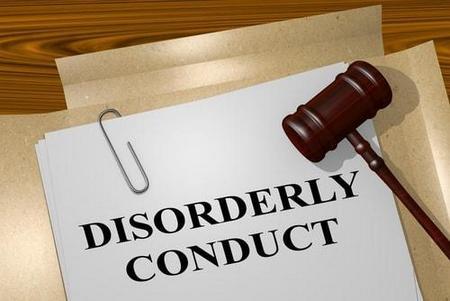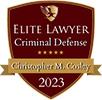Crying Wolf Can Be Grounds For Disorderly Conduct in Illinois
 Everyone has heard the story of the little boy who cried wolf. Repeatedly the little boy made false assertions that a wolf was nearby, alarming everyone else in the town. But in truth, there was no wolf. Finally, others stopped believing the boy, and when the boy saw a wolf that posed a real threat to those in the town, no one would heed his warnings because he had developed a reputation as a liar. The moral of this children’s story is that it is not a good idea to report false threats and place groups of people into a state of alarm unnecessarily. A similar premise underlies Illinois disorderly conduct law.
Everyone has heard the story of the little boy who cried wolf. Repeatedly the little boy made false assertions that a wolf was nearby, alarming everyone else in the town. But in truth, there was no wolf. Finally, others stopped believing the boy, and when the boy saw a wolf that posed a real threat to those in the town, no one would heed his warnings because he had developed a reputation as a liar. The moral of this children’s story is that it is not a good idea to report false threats and place groups of people into a state of alarm unnecessarily. A similar premise underlies Illinois disorderly conduct law.
Falsely alerting groups of people of danger is a serious offense in Illinois. When there is no real threat of danger, there is no need to alert others. Alerting others to a false danger can place these people in a state of panic or distress, and can cause them to act in an alarmed way unnecessarily. In effect, false reports of danger put people on edge, and cause them to do things that they might not normally do because they feel like they are in danger, and these false reports of danger can cause disruptions of the peace. Some examples of offenses that can warrant a disorderly conduct charge include:
- Crying “fire” in a crowded place where there is no real threat of a fire;
- Reporting to 911 a false call for help, such as calling police to a scene where there is no crime being committed or calling for an ambulance when none is required;
- Falsely making a report of a bomb or other dangerous explosive; or
- Making a false report about an abused or neglected child.
Any one of these instances where someone falsely reports a situation or danger, causes dozens of others to be mobilized into action. For instance, if “fire” is shouted in a club, the club patrons will take steps to exit the building, which is unlikely to occur in a safe and considerate fashion since the patrons are likely going to panic. Patrons might get hurt while trying to exit the club, such as being trampled by the crowd or being struck by someone who is panicking. Not only that but if the alleged fire is called into 911, fire trucks will come to the club where there is no real fire, taking these firefighters away from other calls.
It is important to keep the public safe, and that means protecting the public from false reports of danger. That is why Illinois law takes such a firm stance against acts of disorderly conduct. When police, fire, medical services, and child protection services are falsely called to a situation where there is no real threat of harm to anyone, it is a waste of these people’s time and attention.
Contact Us for Professional Representation
If you have been charged with disorderly conduct for falsely reporting a dangerous situation, you should speak with an experienced disorderly defense lawyer as soon as possible. Please do not hesitate to contact a Rolling Meadows criminal defense attorney. Our attorneys are eager to assist you today.
Source:
http://www.ilga.gov/legislation/ilcs/fulltext.asp?DocName=072000050K26-1






















